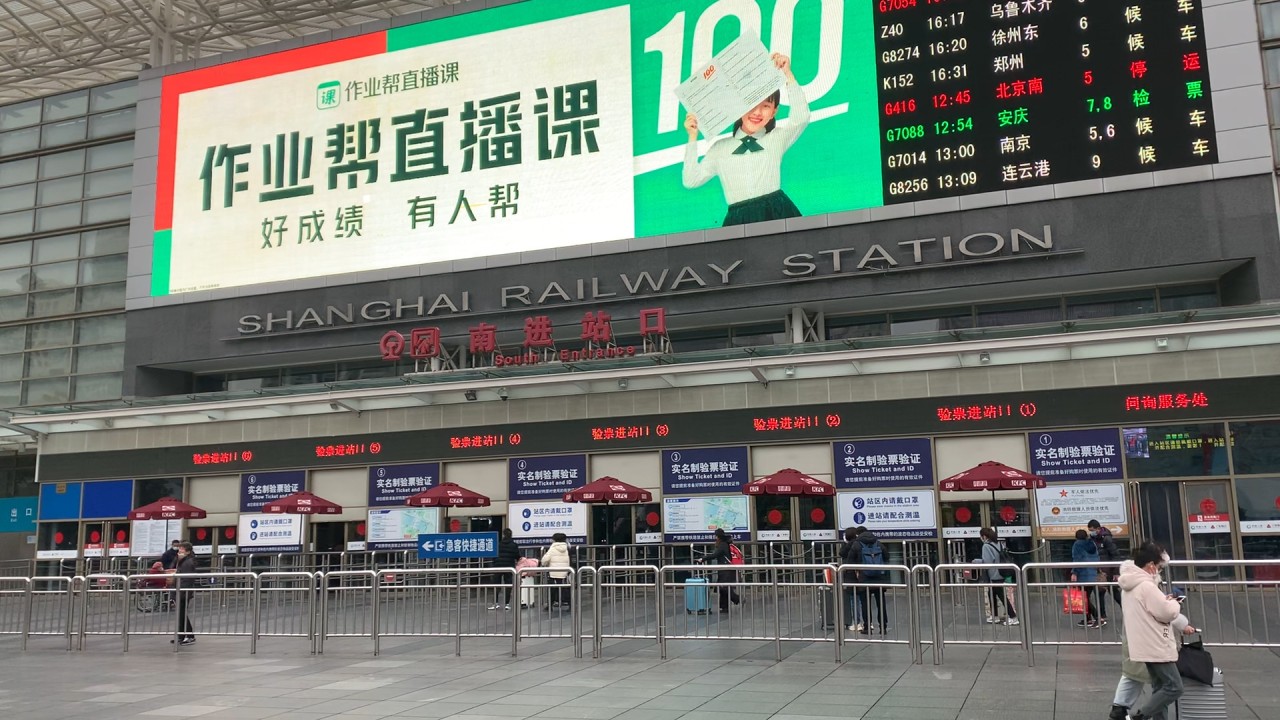
American on World Health Organization coronavirus investigation team dismisses US intelligence
- Peter Daszak suggests President Joe Biden was only sceptical about the WHO’s trip to Wuhan because he ‘has to look tough on China’
- Observers have criticised the inclusion of Daszak as the WHO mission’s sole American because he was affiliated with the Wuhan Institute of Virology
In a series of tweets responding to a South China Morning Post report on the administration’s comments, Daszak suggested President Joe Biden was only sceptical about the WHO’s trip to Wuhan because he “has to look tough on China”.
“Please don’t rely too much on US intel: increasingly disengaged under Trump & frankly wrong on many aspects,” he tweeted on Tuesday night local time. “Happy to help WH w/ their quest to verify, but don’t forget it’s “TRUST” then “VERIFY”!”
On Wednesday morning local time, Daszak added that he was “disappointed” that the administration had made statements “that might undermine the veracity of this work even before the report is released”.
“Again – as the sole US citizen on this team, I’m happy to talk w/ White House re findings of @WHO mission,” he added. “I’ll be back tomorrow.”
The White House did not immediately respond to a request for comment on Daszak’s remarks, and Daszak could not be reached.
TikTok continues talks with Washington on sale of US assets
His comments came at the end of the WHO’s 12-day operation in China, which was meant to give scientists a chance to investigate for themselves the origins of the coronavirus in Wuhan.
Chinese government officials have come under intense scrutiny from the US and elsewhere in the world, including from some Chinese citizens themselves, over its censorship of crucial information in the early days of the epidemic.
Some observers questioned whether the virus first began to spread after leaking out of the Wuhan Institute of Virology, one of the sites on the WHO’s investigation in the city.
Peter Ben Embarek, the WHO mission’s leader, said it was “extremely unlikely” the virus leaked from the Wuhan Institute of Virology. But some observers have criticised the inclusion of Daszak as the group’s sole American in the investigation because he was affiliated with the institute.

02:45
Coronavirus pandemic puts the brakes on China’s usual Lunar New Year travel rush
According to the science magazine Nature, Daszak has professional ties to the Wuhan Institute of Virology and had funding from the US National Institutes of Health (NIH) suspended last year as a result.
Yun Sun, director of the China programme at the Stimson Centre think tank in Washington, said Daszak was “famous” for his prior relationship and cooperation with the institute in Wuhan.
“I think people have legitimate concerns coming to his objectivity and comments,” she said. “His comments will certainly make Beijing happy.”
Chinese government officials and state media outlets have lashed out at suggestions that the country bears any responsibility for the pandemic.
Two masks better than one against Covid-19, US researchers say
One Chinese state media writer who uses Twitter applauded Daszak’s statement online, calling it “a slap in the face of many US politicians and journalists”.
The WHO has also faced criticism in Washington for going along with Beijing’s official narrative on the disease.
Former president Donald Trump moved to withdraw from the organisation in protest last year, but Biden reversed the decision soon after taking office last month.
The Biden administration nevertheless has said that the organisation is in need of reform, and on Tuesday, White House spokeswoman Jen Psaki said the administration was reserving judgment on the WHO’s findings until it could review the data.

“We’ve expressed our concerns regarding the need for full transparency and access from China and the WHO to all information regarding the earliest days of the pandemic,” she told reporters on Tuesday, before Daszak’s comments. “But we weren’t involved directly in the implementation of this investigation.”
Another WHO team member, Thea Koelsen Fischer, said she did not get to see raw data on the trip, and had to rely on an analysis of the data that was presented to her, according to Associated Press. She added that that would happen in most countries.
As Covid-19 crashes Lunar New Year party, Asians find other ways to celebrate
The NIH, which manages Washington’s relationship with the WHO, directed an inquiry to the WHO. A WHO spokesman said the team sent to China was put together “based on the best experts from the relevant fields”.
Sun, from the Stimson Centre, said Daszak’s comments and even the mission itself would likely do little to assuage critics’ suspicions about the WHO and China.
“If China is fully transparent and has nothing to hide, it should have the confidence that the result and conclusions will remain the same regardless of who comes to investigate,” she said. “Why being so selective?”
“After all, it is the sceptics that China should prioritise to convince,” she said.

